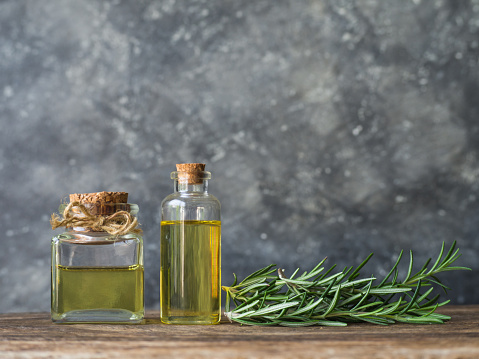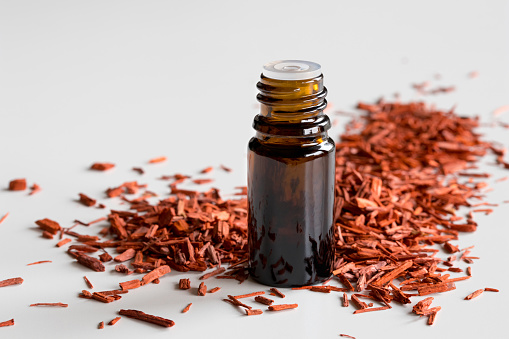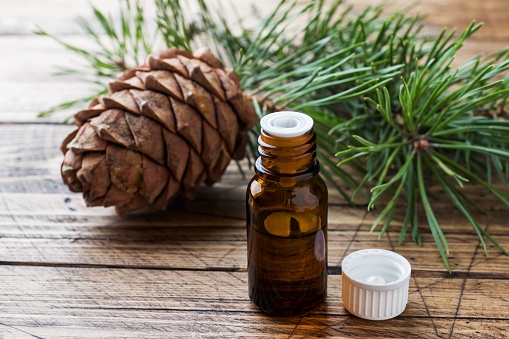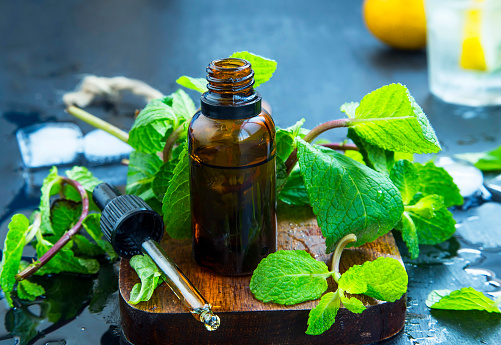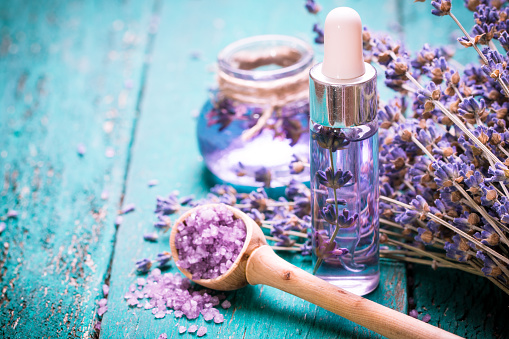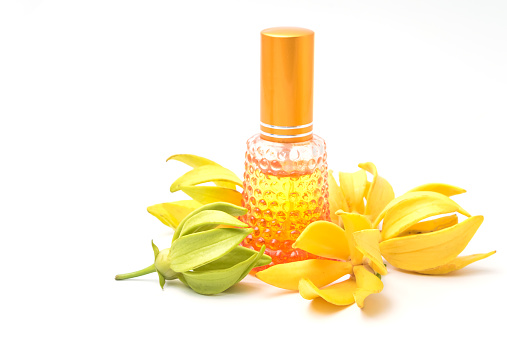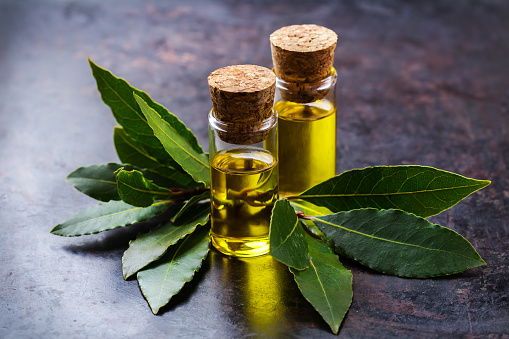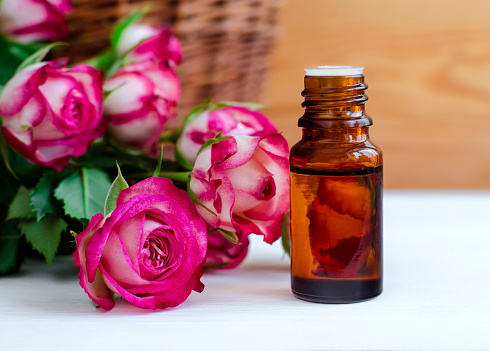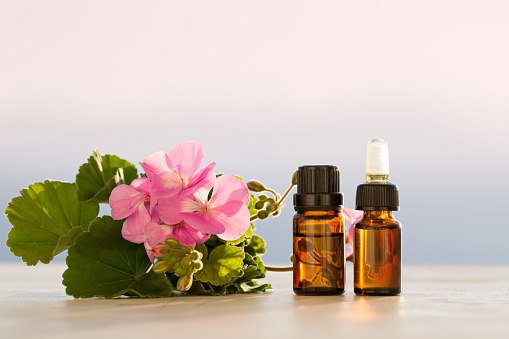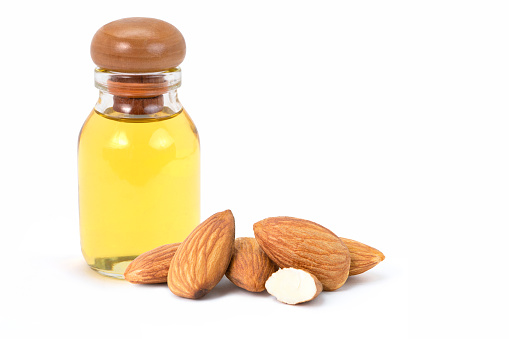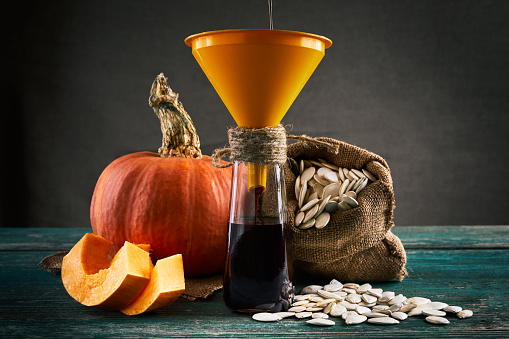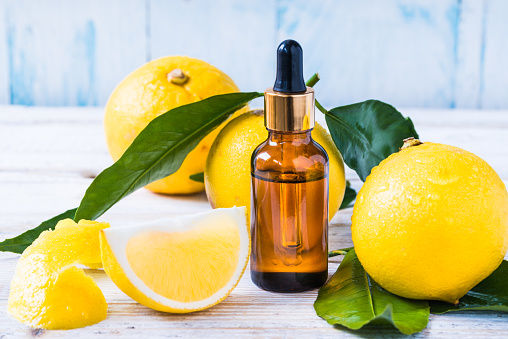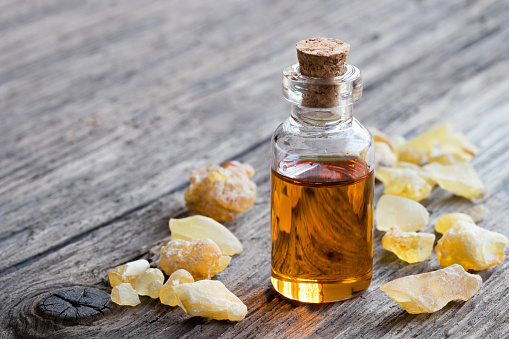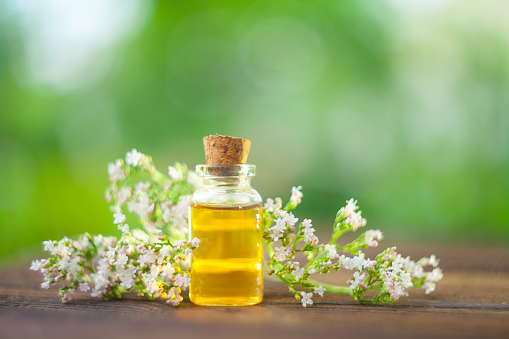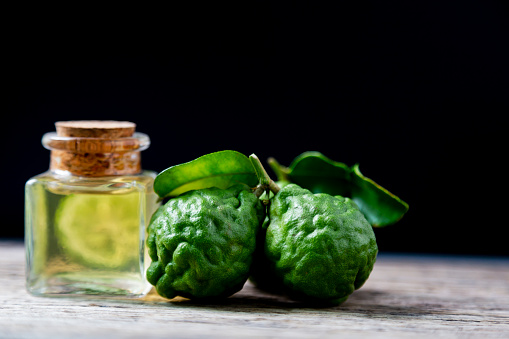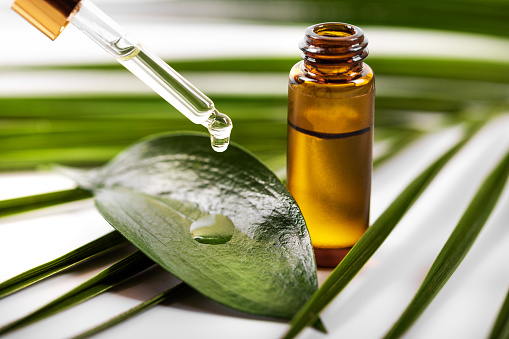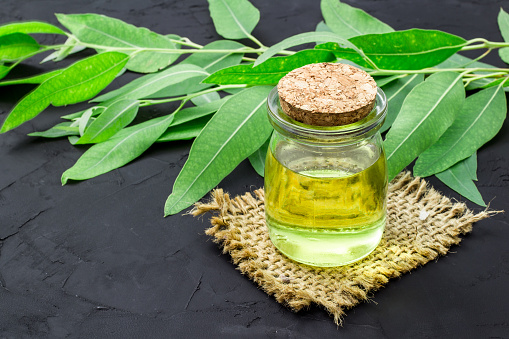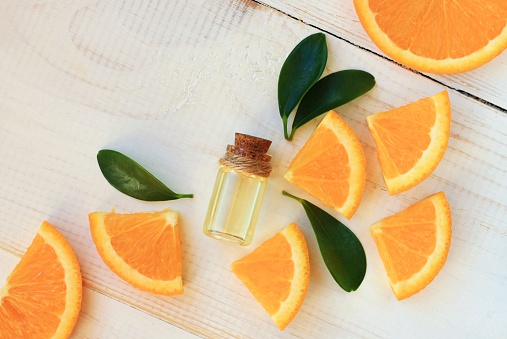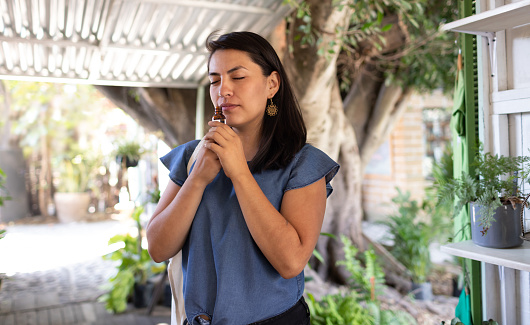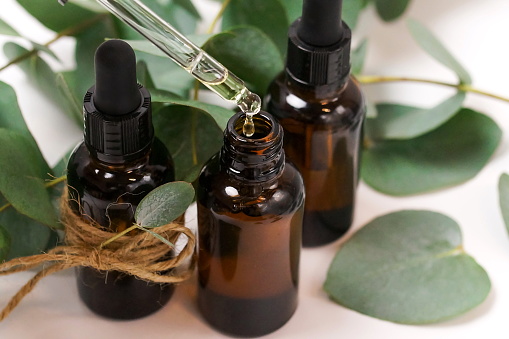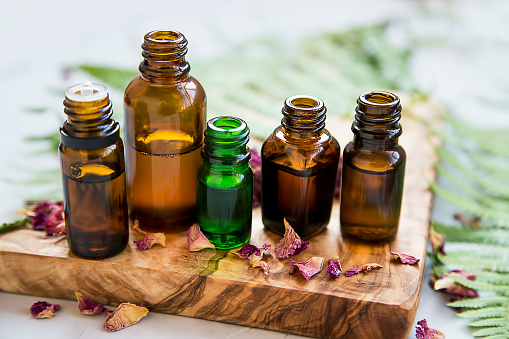Essential Oils for Headaches, Stress, and Sleep

Life is stressful, and it's no wonder that many people suffer from headaches. Stress can lead to tension in the muscles of your neck, shoulders, back, and head which can cause pain in these areas. Fortunately for us, there are natural ways to help reduce stress with essential oils! From headaches to stress relief to sleep - there's an oil for everything!
First, we will be discussing what are essential oils are, how they can help, the safety precautions of essential oils, and then finally, some helpful recipes for using your essential oil diffuser to help you sleep, relax, and reduce stress. Let's begin...
What are Essential Oils?
Before discussing how essential oils can help with different pains or problems, it would be wise to discuss what an essential oil truly is. An essential oil is a concentrated hydrophobic liquid containing volatile aroma compounds from plants. The name derives from the word "quintessential," meaning "the most concentrated essence of something" - which is exactly what these oils are! Essential oils are not new discoveries by any means, though. They have been used effectively for thousands of years in many different cultures around the world.
How essential oils are made, and how can they help you
Essential oils are natural, aromatic compounds found in plants. They are distilled from their flowers, leaves, stems, or roots and contain the plant's "essence." People have used these oils for thousands of years to treat various illnesses. The benefits of them range widely with uses for headaches, stress relief, sleeping problems, and more! Essential Oils can be very potent if not used properly, so please always consult your doctor before using them on children or anyone with major health conditions.
The following guide is intended as an overview only. It is not intended to provide specific medical advice but rather to offer general information about some common essential oil ingredients. If you're considering using aromatherapy products, we strongly recommend speaking to a medical professional beforehand.
Aromatherapy has been used for thousands of years to help treat a variety of illnesses, including stress, sleeping problems, and more, with positive results. Essential oils have been shown in many cases to be just as effective as prescription medication when treating certain conditions with benefits ranging from headache relief to sleeplessness.
Oils come from natural ingredients such as flowers or leaves. If you'd like to know more about specific oils mentioned here, please feel free to ask us in the comment section below! Just remember that this blog does not intend to replace any medical advice, so don't hesitate to get in touch with your doctor before trying anything new!!
Essential oils for headaches
Here are some of the most popular headache busting essential oils:
Rosemary
This type of essential oil has been scientifically proven to effectively increase concentration levels while simultaneously decreasing headaches - more specifically, migraine headaches. Its soothing aroma may help calm a headache and provide relief from pain at the same time.
Sandalwood
This essential oil is good for headaches that are caused by depression, stress, and anxiety - all of which bring about physical pain and discomfort. The scent of sandalwood can offer people a calming effect while providing relaxation. It gives off a woody type smell, so you know it's working to improve your mood while relaxing your muscles in order to decrease pain levels felt across your head.
Pine oil
When relieving muscular aches and pains, pine oil works by massaging it into your skin. This helps increase blood flow to your muscles along with oxygen to bring more relief than ever before. It is also great for treating colds since it can help clear up mucus very quickly, so you'll feel better soon enough.
Peppermint
Peppermint oil is good for many types of pain relief and headache - specifically, stress headaches. Its cooling sensation when inhaled or topically applied can provide a soothing feeling that helps alleviate tension that may have been caused by stress or lack of sleep.
Just like sandalwood oil, peppermint oil can be used as an antiseptic agent but due to its cooling sensation when applied onto the forehead, it is able to improve mental focus while helping reduce pain at the same time.
Essential oils for stress relief
Now, let's take a look at essential oils that are best for stress relief:
Lavender
Lavender oil is known to help people relax and de-stress. Its calming scent can also help with sleep problems such as insomnia or night terrors if applied to the nose and temples before bedtime and is especially helpful with stress headaches. The scent of lavender oil is also able to improve the focus and alertness.
Ylang-ylang
Have you ever heard of this essential oil before? Otherwise known as the 'flower of flowers, ylang-ylang oil is usually found in the South Pacific and has only just recently become popular in Western aromatherapy. The scent of this flower oil can help boost your mood by calming anxiety, balancing emotions, relieving stress, and producing a mild sedative effect that leaves you feeling drowsy.
It was found in a study that ylang-ylang has an effect on lowering cortisol levels. Cortisol, otherwise known as the stress hormone, along with tension, fatigue, and depression, was all reduced through exposure to ylang-ylang fragrance.
Bay laurel or sweet bay tree
It needs no introduction but is often referred to as laurel leaf essential oil. It's an oil produced from the bay tree, which belongs to the same family as cinnamon and can be used for its relaxing properties both physically and emotionally. As well as helping with stress relief, it also helps prevent muscle spasms, soothes skin irritations like eczema and dermatitis.
Rose
Rose oil doesn't just help improve blood circulation and reduce pain; it also provides a calming and soothing scent that can greatly reduce stress and anxiety. It's especially helpful for those who tend to be affected by emotional stress such as PMS, menopause, or premenstrual syndrome (PMS).
Geranium
Geranium is yet another essential oil for stress relief, but it's also quite effective at easing anxiety. It can be used to rid the air of toxins that are often associated with stress-inducing odors and brings a light touch of energy that can replace lethargy with motivation.
Almond
The almond tree provides two things: seeds for eating and oil for essential oils. More specifically, almond oil is loaded with vitamin E, which has regenerative properties that help condition the skin while improving elasticity. This particular essential oil helps ease muscle tension and, therefore, stress due to aches caused by even mild exertion like yard work or heavy lifting.
Pumpkin Seed
If coconut oil is too greasy for you and sunflower isn't moisturizing enough, pumpkin seed might just be the oil for you. This natural oil is rich in fatty acids, which help to hydrate dry skin and can help ease some of the discomforts of psoriasis or eczema.
Lemon
Known for its refreshing scent, the lemon essential oil is one of the most sought-after essential oil. It is believed to be able to reduce stress. It's considered to be a natural antidepressant. It also helps to improve mood, reduces anxiety, and even helps reduce symptoms associated with PMS and menopause (such as hot flashes).
Frankincense
This oil is known for its ability to help rejuvenate the skin and boost your immune system. However, it's also beneficial in reducing stress and increasing feelings of calmness and relaxation.
On top of all that, frankincense has been known to treat acne and other skin conditions such as eczema. Are you feeling stressed out? Try adding some drops of this essential oil into your bath water or diffuse into the air for an instant calming effect!
Sandalwood
Sandalwood is also good for relieving stress. Its sweet scent has soothing properties that make it easier to relax. It induces relaxation and eases you into sleep slowly with few drops.
This essential oil is also able to reduce tension headaches, making it easier for you to focus on your tasks without being distracted by pain at the same time.
Valerian
Valerian oil is an herbal remedy that can help ease the nerves and have a calming effect on people who are easily stressed out. It helps promote restful sleep as well, which means you'll be refreshed the next day when facing your assignments!
Bergamot
Bergamot essential oil is one of the best stress-relief oils because of its ability to balance emotions.
Rosemary
Like sandalwood, rosemary works as a stress reliever and headaches. It is also known as a natural mood enhancer because it's known to boost the activity of gamma-aminobutyric acid (GABA). This neurotransmitter (GABA) can cause a calming effect on people, making them feel more relaxed.
Tea Tree Oil
Use tea tree oil for aromatherapy sessions if you want to soothe your mind and body. This essential oil has soothing effects that allow users to quickly calm down after facing frustrating situations. It's also known as an antibacterial agent that can help ease pain or skin inflammation caused by acne or insect bites.
What are the other benefits of using essential oils?
Essential oils are distilled hydrophobic liquids that can be extremely beneficial in small doses when used safely. They contain biologically active compounds which act on the body's chemistry when inhaled or applied topically. Valued for their aromas and therapeutic properties, there are several different types of essential oils produced from plants around the world that have many uses, including ingestion, topical application, household cleaning products, and diffusers.
Aside from the fact that they smell great, essential oils are also an effective way of treating or preventing various health issues. One popular topic is their ability to treat headaches. Essential oils may be used both topically and as aromatherapy to provide relief. Other benefits of using essential oils include the following:
They can help with pain relief.
Essential oils are loaded with healing properties, which explains why they've been used for centuries to help promote physical and mental wellness. One of the great appeals of aromatherapy is that it doesn't require strong drugs or chemicals to work; instead, it harnesses the power of nature through plant extracts. Some essential oils are even FDA-approved as safe for medical treatments.
Because essential oils contain potent compounds, be sure to ask your family physician or do your research before using these remedies. Look up where you want to place the oil on your body to make sure there aren't any contraindications or interactions with medications you're taking.
The science behind aromatherapy is growing by leaps and bounds!
Essentials can boost mood.
Some ingredients in essential oils mimic the effects of serotonin, a neurotransmitter that helps us feel happy.
They can also help with inflammation.
When applied to pressure points on the head and neck, these mixtures can relieve pain from tension headaches. Essential oils' analgesic properties can also provide some natural pain relief for arthritis and other conditions involving inflammation.
Essentials can help you feel relaxed.
It's important to find what works best for you! It might take a few tries before you figure out which scent truly relaxes you, but don't give up—the experience is well worth it.
They can reduce stress.
Essential oils have been shown to have a soothing effect on the hypothalamus gland, which helps control stress levels in the body. In addition, since aromatherapy has been shown to increase serotonin and beta-endorphin levels, essential oils can be a great way of turning down the noise in your head and relaxing after a long day at work or at the gym.
Essential oils can help with sleep.
Researchers have found that the hormone melatonin is produced 20% faster in the presence of essential oils. In addition, aromatherapy has been shown to increase serotonin and beta-endorphin levels. These hormonal changes help improve mood and promote a more restful night's sleep.
Some people swear by essential oils as an effective treatment for insomnia. A relaxing bedtime routine with scented candles or a diffuser could help lull you to sleep. Inhaling certain oils may even have a more powerful effect than taking medication.
Some can help increase your energy levels.
If you are looking for ways to increase your energy levels, research has found that peppermint oil may have the best results. The intense aroma of this potent oil is invigorating without being overwhelming. You can try putting a few drops on your pillowcase or using an essential oil inhaler before heading off to work.
Essential oils for other health concerns
Looking beyond stress, sleep, and headaches, there are other conditions that essential oils can aid. They work as natural remedies for certain health concerns such as treatment of asthma, easing nausea, and so much more.
Take a look at the following examples:
Eucalyptus oil
Eucalyptus oil has several health benefits, such as relieving muscular aches and pains, treating respiratory tract infections such as colds or bronchitis, lowering fever, speeding up healing wounds, and preventing infection after surgery. The main chemical compound in the leaves of the eucalyptus tree is called Eugenol, which has anesthetic and warming properties.
Orange
The essential oils derived from oranges are antibacterial, antiseptic, antiviral, analgesic (pain-relieving), decongestant, sedative, and tonic. Oranges are loaded with vitamin C, which makes this oil an excellent antioxidant that can help reduce sun damage to your skin as well as other scars, including stretch marks.
Although still needs further research, oranges are believed to have a positive effect on certain cancers like leukemia since it stimulates T cells. And last but not least, orange essential oil's fragrance is said to elevate mood while increasing mental awareness and clarity.
Tips on how to find a good quality, pure essential oil product:
Finding the best essential oil products to meet your needs can be difficult. This is especially true if you are shopping online since there are many different brands and scents that claim to offer the same results. Here are some tips to use when buying or making your own essential oils for headaches or stress relief:
- Look for products with labels detailing the ingredients (plant name, Latin scientific name, country of origin) as well as where they were grown and what part of the plant was used. It's also important to know how the plants were harvested, distilled/extracted, diluted/concentrated, and stored before reaching store shelves or entering into transactions online.
- Find suppliers that state unequivocally that their oils are 100 percent pure therapeutic grade. This means that the company has third-party documentation to verify that oils are free of contaminants, including pesticides and other chemicals.
- As green living becomes more prevalent, look for companies whose harvesting practices are sustainable, fair trade, or organic.
- Remember when using essential oils to dilute them with a carrier oil before applying them topically or using them. Using undiluted oils can irritate your skin or cause other health problems.
The following tips will help you find the best quality essential oils at affordable prices:
- Absolutes/concretes - Look for labels that state "Pure essence" or "absolute" because these are purer than absolutes that have been processed with chemicals to remove the molecules responsible for scents.
- Essential oils are the most potent when they're packaged in dark glass bottles. If you can't afford them, protect your essential oils from light by storing them in a closet or other dark place.
- Buy therapeutic-grade essential oils. All reputable companies selling pure and unadulterated essential oils will only sell therapeutic grade, so beware of any company that claims to be selling "therapeutic" oil without designing this term on their label.
- When buying an essence for its specific use, it's best to buy one that's labeled "aromatherapy." Most aromatherapy essences don't have a standardized purity and strength, but some manufacturers do guarantee their purity if it isn't labeled as aromatherapy.
- Avoid oils that contain ingredients besides essential oils. Essential oils should be pure and unadulterated, with nothing added or taken away from the essence itself. Low-quality companies will sometimes dilute their essences with other cheaper substances like alcohol, vegetable oils, mineral oil, or even lard to make more money off of each bottle sold.
- Make sure your company is reputable and hasn't had any issues or complaints filed against them in the past for quality control problems. For this, you'll have to do a little digging on your own. Start with online reviews and Google the company name. Try to find information about any complaints or problems that people might be having with them before you spend any money.
- If you're not sure how pure the oil is or if it's been diluted with another substance, don't buy it. It will only take up space in your home until you can return it and waste your hard-earned cash on something useless instead of something that could help you feel better.
- Although certain oils aren't suitable for particular skin types due to their chemical makeup, most essential oils can be used safely by almost anyone as long as they're applied correctly and kept out of sensitive areas like the eyes.
- Keep in mind that some essential oils can cause serious health problems if taken internally without the supervision of a trained aromatherapist or medical professional, so don't ingest any oil that you haven't been specifically instructed on how to use safely.
- If you want to try out an essential oil for therapeutic purposes, only purchase one from a reputable company that clearly states the Latin name of the oil and signs off on their safety practices.
- Essential oils should never be ingested, applied directly to open wounds or skin irritations without guidance from a medical professional, used by pregnant women, diffused around pets or small children, diffused before going into a sauna/steam room or bathtub, used with certain medications (including blood thinners), or exposed to direct sunlight for more than a few minutes. Always talk to a doctor first if you have any concerns about using essential oil.
- Everyone's body has its limit for what it can handle before it starts having negative reactions from essential oils.
- Do not ingest oils directly from the bottle; they are meant to be used in a diffuser or mixed with a carrier oil (almond, coconut, avocado). If you apply them directly to your skin (or your pet's), make sure they're diluted, and always use a carrier oil first. Oils should also never touch mucus membranes like the nose or mouth unless it's been properly diluted/mixed, or else you'll risk an infection. Always keep out of reach of pets and kids.
- Essential oils can cause all sorts of reactions such as nausea, headaches, irritability, rashes, and respiratory problems if inhaled inappropriately; even though some oils smell good when diffused into the air, that does not mean it's safe to inhale. If you're pregnant, breastfeeding, or have a medical condition, always consult with a doctor before using any sort of essential oils or supplements.
Disclaimer
This article is not intended to diagnose, treat, prevent, or cure any illness. It is for information purposes only. Do your research and proceed with caution and use as instructed. This article has not yet been evaluated by the FDA.
Essential oils might be the solution that can help you!
Do you suffer from ongoing headaches or stress? Are you anxious, tired, or unable to sleep at night? Essential oils might be the solution that can help with these concerns.
But, let's be clear right off the bat:
- Essential oils are not a miracle cure for anything.
- They won't make your problems disappear instantly.
- They should never replace any medications or therapy sessions you may have had in place prior to using them.
For instance, it doesn't matter how many drops of lavender you put in your bath, and it's still going to take time for the anxiety to fade away. What they will do, though, is stimulate your senses, improve mood, and boost immunity.
Essential oils are also natural, chemical-free, and could save you a lot of money compared to expensive spa treatments or chemical store products that can have hidden side effects.
Do any of the above essential oils sound like what you need? Let us know in the comment section below!

